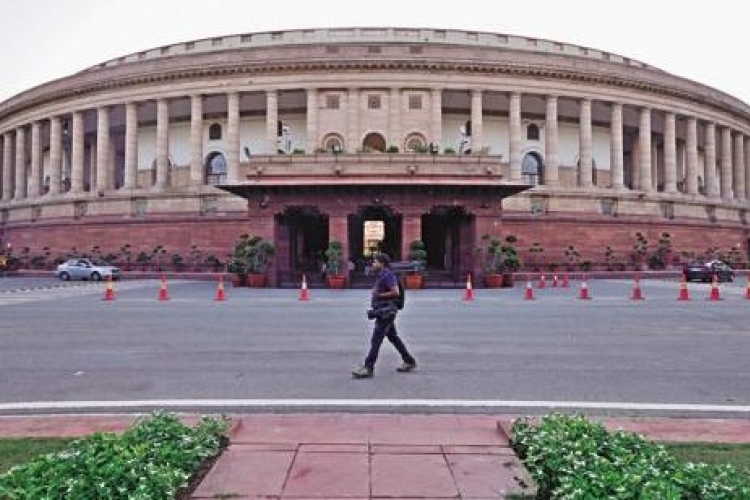Citizenship bill passed
In news
lower house of parliament has approved a bill that would grant residency and citizenship rights to non-Muslim immigrants, sparking protests that brought the country's populous northeast to a near standstill.
WHAT IS THE CITIZENSHIP AMENDMENT BILL 2016?
The Citizenship Amendment Bill seeks to allow illegal migrants belonging to the Hindu, Sikh, Buddhist, Jain, Parsi or Christian religious communities coming from Afghanistan, Bangladesh or Pakistan to not be imprisoned or deported. It also appeals for the minimum years of residency in India to apply for citizenship to be lessened from at least 11 to six years for such migrants.
The Bill, however, does not extend to illegal Muslim migrants. It also does not talk about other minority communities in the three neighbouring countries, such as Jews, Bahais etc.
Key features of the amendment
The Citizenship Act of 1955 labels a person an “illegal immigrant” if they have entered India without travel documents or overstayed the date specified in the travel documents. The purpose of the Citizenship (Amendment) Bill 2016 is to provide Indian citizenship to those who had been forced to seek shelter in India because of religious persecution or fear of persecution in their home countries, primarily Hindus, Sikhs, Jains, Buddhists, Parsis and Christians from Afghanistan, Pakistan and Bangladesh. They can apply for citizenship and can stay in any state in India.
Citizenship would only be given to people after scrutiny and recommendation of district authorities and the state government. The bill was introduced in 2016 and was later sent to the joint parliamentary committee, which submitted its report on Monday.
WHY ARE PEOPLE IN ASSAM NOT HAPPY ABOUT IT?
Assam has been grappling with illegal migration for a while. The Assam Accord was signed on 15 August 1985 and the National Register of Citizens (NRC) was also launched to tackle the problem of illegal migration. There is a belief that the Accord has not been implemented properly.The Citizenship Amendment Bill has not been sitting well with the Assamese as it contradicts the Assam Accord of 1985, which clearly states that illegal migrants heading in from Bangladesh after March 25, 1971, would be deported.
Protesters are angry not because the bill excludes Muslims, but because it would grant citizenship to undocumented Hindus who failed to prove their citizenship and hence were excluded from the draft National Register of Citizens (NRC) published last July.
The issue of immigration from Bangladesh has spurred periodic public uprisings in Assam since the Indian government granted rights to Bangladeshis who entered the country before 1971 - the year Bangladesh won independence from Pakistan.Now this issue has added feather to its cap .
What is the Citizenship Act 1995?
Under Article 9 of the Indian Constitution, a person who voluntarily acquires citizenship of any other country is no longer an Indian citizen.
Citizenship by descent: Persons born outside India on or after January 26, 1950, but before December 10, 1992, are citizens of India by descent if their father was a citizen of India at the time of their birth.
From December 3, 2004, onwards, persons born outside of India shall not be considered citizens of India unless their birth is registered at an Indian consulate within one year of the date of birth.
In Section 8 of the Citizenship Act 1955, if an adult makes a declaration of renunciation of Indian citizenship, he loses Indian citizenship.
Who is an illegal immigrant?
According to the Citizenship Act (1955), an illegal immigrant is defined as a person who enters India without a valid passport or stays in the country after the expiry of the visa permit. Also, the immigrant who uses false documents for the immigration process.
What are the guidelines to become an Indian citizenship?
Citizenship is granted to an individual by the government of the country when he/she complies with the legal formalities, so it’s like a judicial concept.
In India, the Citizenship Act, 1995 prescribes five ways of acquiring citizenship:
Birth
Descent
Registration
Naturalization
Incorporation of the territory.


 IAS -2025 Prelims Combined Mains Batch - III Starts - 14-04-2024
IAS -2025 Prelims Combined Mains Batch - III Starts - 14-04-2024